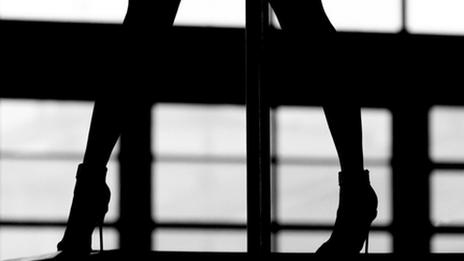Ban on Edinburgh lap dancing clubs overturned
- Published
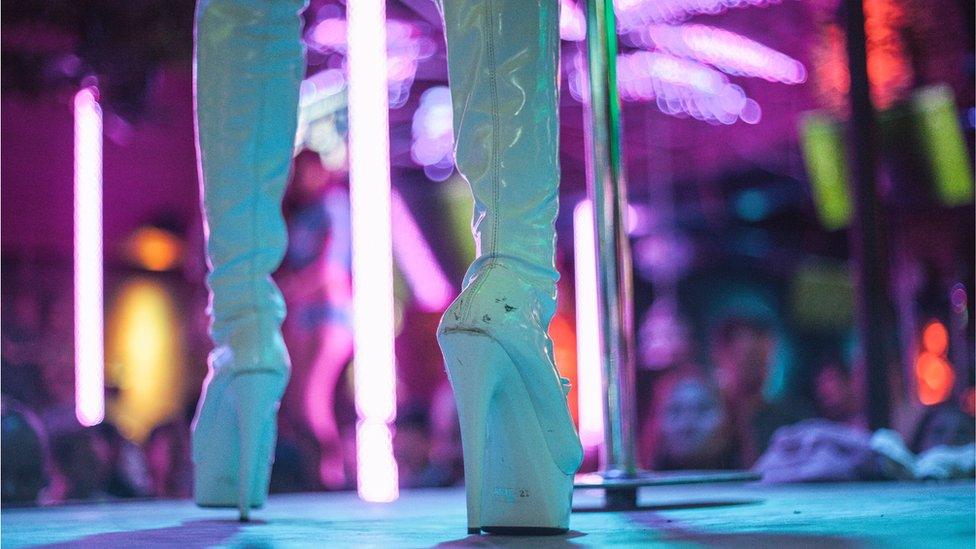
A union said 100 women would lose their jobs if the city's three remaining lap dancing venues were forced to close
A ban on lap dancing clubs in Edinburgh that was due to come into force later this year has been overturned.
Councillors voted to limit the number of sexual entertainment venues (SEVs) in the city from the current four to zero from April.
A group of club owners and performers launched a legal challenge to the move.
The Court of Session agreed with them that the city council had acted illegally by effectively banning lap-dancing clubs.
Lord Richardson ruled that the council's plan to stop awarding licences to adult entertainment venues - the so called nil cap - was unlawful.
He also concluded that councillors had been given incorrect legal advice about the impact of the decision they had made in March of last year.
The legal representatives believed that the council could still award licences to adult entertainment venues on a discretionary basis.
But lawyers for four Edinburgh based venues - including the Burke and Hare, the Western Bar and Diamond Dolls - believed this was incorrect and that the decision meant that their venues would not be allowed to operate.
They argued that the council's plan would put the jobs of 100 women at risk.
In a lengthy written ruling, external, Lord Richardson agreed that the council's decision amounted to an unlawful ban on adult venues in Edinburgh.
He added: "I do not consider that the respondent (the council) has put forward a good reason why the erroneous decision should not be quashed".
A crowd-funded judicial review was heard at the court in early December.
Members of the United Sex Workers (USW) union highlighted concerns about its members potentially having to work in unsafe, unregulated environments if the three remaining adult venues in the city were forced to close.
The union said workers were "incredibly pleased" at the court's ruling as the closure of all lap dancing clubs in the city would have "meant many of our members losing their livelihoods or having to move away from their homes and families to find work elsewhere".
It added: "Not only is this a huge win for strippers in Edinburgh, who are no longer facing the prospect of forced mass-unemployment in the middle of a recession, but for the working rights of strippers across Britain.
"Nil-caps are a violent, anti-worker policy that removes strippers' access to safe workplaces, workers rights and their ability to improve their own working conditions.
"Now they have been found unlawful, we hope this puts an end to local councils imposing strip club bans and closing down our places of work, for good."

'A massive step forward for strippers'
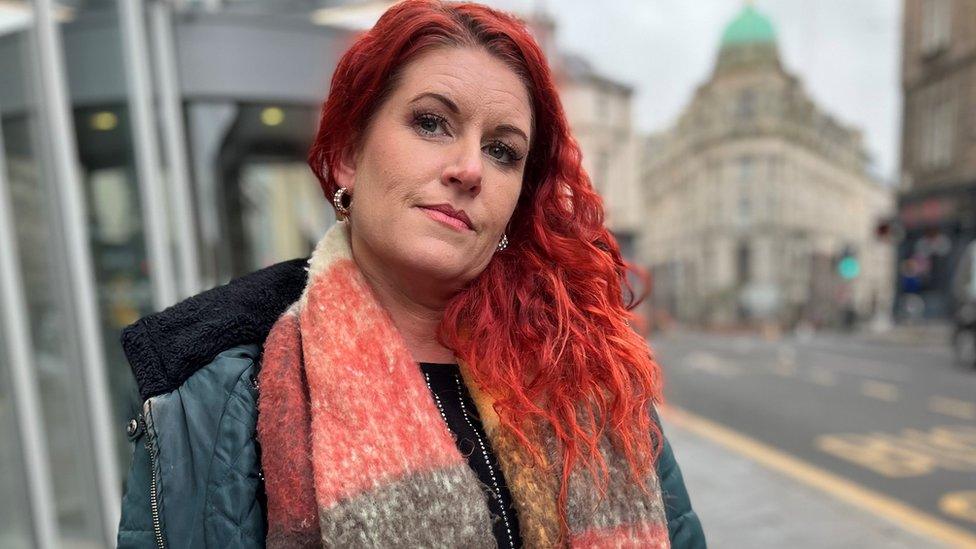
Erin, a stripper for 15 years, says "I take my clothes off for a living and I am proud of it"
Erin, an Edinburgh-based stripper, told BBC Scotland the last year had been "very distressing" not knowing if her employment venues would be shut down.
"I was looking to have to move in April to somewhere else where strip clubs are allowed, because I have no intention of stopping being a dancer," she said.
"But there are other women who are mothers and have families here who don't have that option. They would just be forced out of work and into the benefits system.
"It has been stressful. I have been part of the union and fighting this from day one. We raised the money for the legal fees in four weeks - the public support has been amazing - but even then, the council tried to block us being part of the judicial review. They didn't want to hear our voices.
"We didn't know which way it as going to go so it's absolutely amazing. It is good for Edinburgh but also good for sex workers around the UK.
"If it is unlawful in Edinburgh, it should be unlawful in any city. So it is a massive step forward for us as strippers and sex workers as a union.
"I have done this job for 15 years and I continue to want to do it. I know it is not for everybody but it creates options for women who wouldn't have opportunities elsewhere. To take that away from women would just be wrong.
"The violence against women argument has been debunked. The cities where strip clubs have been closed, violence against women has gone up.
"If this ban had gone through, we would have been pushed into working in underground, dangerous places with no CCTV and no bouncers. Here we have safety and the other girls are looking out for you.
"I feel safer in a strip club than I do a normal bar. If somebody tries to grab you here, I can tell the bouncers and they get thrown out. We actually have the power in strip clubs."

Steve MacDonald from the Club Operators Action Group, which brought the legal action, said it would work with the regulatory committee and licensing board to continue providing "a proven safe working environment for all our staff members, customers and particularly our performers".
The council's regulatory committee originally voted by a majority of five to four to effectively ban the clubs, but its membership has changed since May's local elections.

Three of Edinburgh's lap dancing clubs - Burke & Hare, Western Bar and Baby Dolls - are in the West Port area of the city
Earlier this week the new committee backed a 12-week consultation - once the outcome of the judicial review was known - to allow the council to review the policy.
A City of Edinburgh Council spokesman said: "We have received the ruling of the judicial review which we are considering in detail before deciding on our next steps."
The Scottish government brought in laws in 2019 allowing councils to limit the number of lap dancing venues.
In March last year, Glasgow City Council agreed to allow the city's three lap dancing clubs to continue trading, and awarded licences for the first time in September.
Related topics
- Published12 July 2019
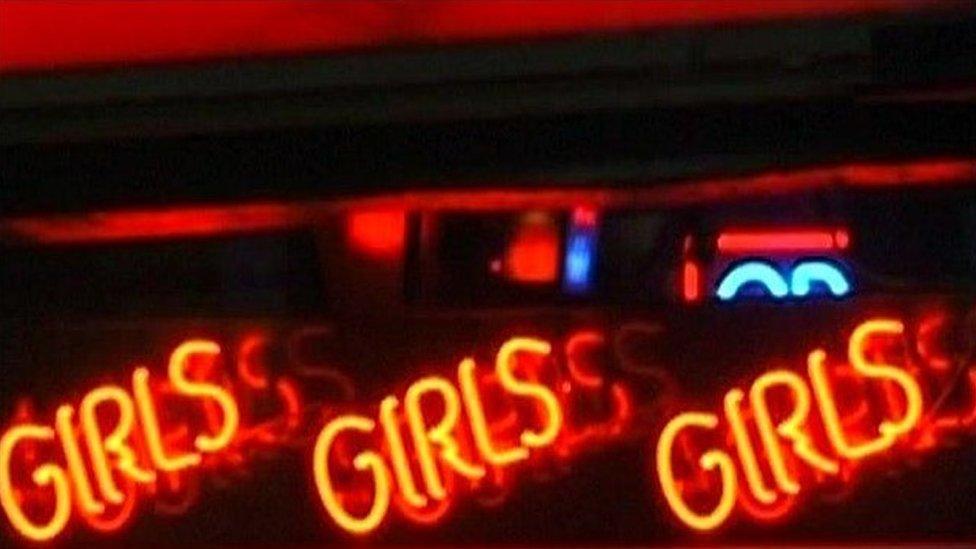
- Published21 October 2019
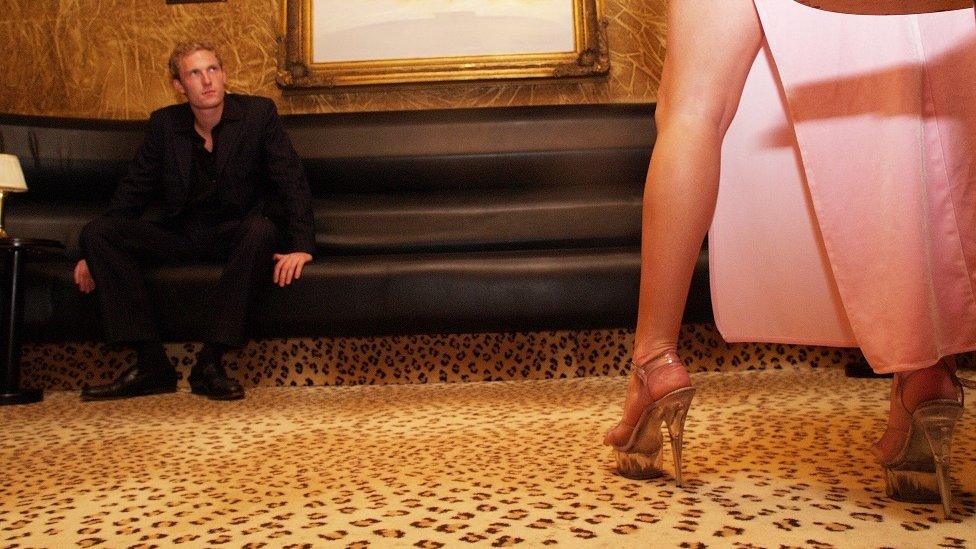
- Published15 October 2019

- Published14 January 2015
